10 start with T start with T
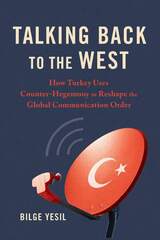
Insightfully exploring the crossroads of communications and authoritarianism, Talking Back to the West illuminates how the Erdogan government and its media allies use history, religion, and identity to pursue complementary agendas and tighten the AKP’s grip on power.

Text and Interpretation: Imam Jaʿfar al-Ṣādiq and His Legacy in Islamic Law examines the main characteristics of the legal thought of Imam Jaʿfar al-Ṣādiq, a preeminent religious scholar jurist of Medina in the first half of the second century of the Muslim calendar (mid-eighth century CE). Numerous works in different languages have appeared over the past half century to introduce this school of Islamic law and its history, legal theory, and substance in contexts of Shīʿī law.
While previous literature has focused on the current status of the school in its developed and expanded form, this book presents an intellectual history of how the school began. The Jaʿfarī school emerged within the general legal discourse of late-Umayyad and early- Abbasid periods, but was known to differ in certain approaches from the other main legal schools of this time. Namely, the Jaʿfarī school expanded the tools for legal interpretation generally and contracts specifically, to a degree unmatched by any of its counterparts in the Muslim legal tradition. In addition to sketching the origins of the school, the book examines Jaʿfar al-Ṣādiq’s interpretive approach through detailing his position on a number of specific questions, as well as the legal canons, presumptions, and other interpretive tools he adopted.
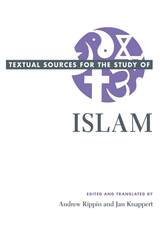
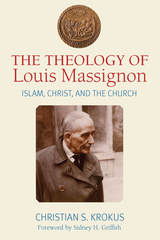
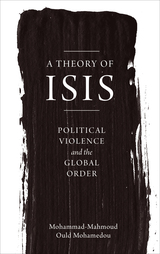
Against these established narratives, Mohammad-Mahmoud Ould Mohamedou now presents his new theory of ISIS. Tracing the genealogy of ISIS and documenting its evolution in Iraq and Syria, he argues that ISIS has actually transcended Osama Bin Laden’s original scheme of Al Qaeda, mutating into a unprecedented hybrid between postcolonial violence, postmodernity, and postglobalization. A Theory of ISIS offers an original take on the militant group. Mohamedou explains the proliferation of terrorist attacks on the West and deepens our understanding of the group's impact on the very nature of contemporary political violence.
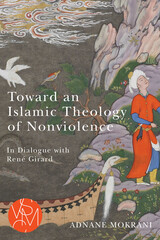
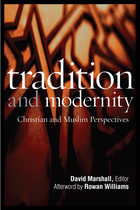
Tradition and Modernity focuses on how Christians and Muslims connect their traditions to modernity, looking especially at understandings of history, changing patterns of authority, and approaches to freedom. The volume includes a selection of relevant texts from 19th- and 20th-century thinkers, from John Henry Newman to Tariq Ramadan, accompanied by illuminating commentaries.
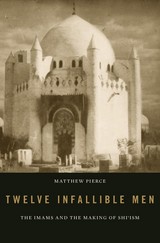
A millennium ago, Baghdad was the capital of one of history’s greatest civilizations. A new Islamic era was under way. Yet despite the profound cultural achievements, many Muslims felt their society had gone astray. Shiˀa Muslims challenged the dominant narrative of Islamic success with stories of loss. Faithful Muslims have long debated whether Sunni caliphs or Shiˀa imams were the true heirs of the Prophet Muhammad. More influential has been the way Muslim communities remembered those disputes through stories that influenced how to think and feel about them, Matthew Pierce argues.
Twelve Infallible Men focuses on the role of narratives of the imams in the development of a distinct Shiˀa identity. During the tenth century, at a critical juncture in Islamic history, a group of scholars began assembling definitive works containing accounts of the twelve imams’ lives. These collective biographies constructed a sacred history, portraying the imams as strong, beautiful, learned, and pious. Miracles surrounded their birth, and they became miracle workers in turn, but were nevertheless betrayed and martyred by enemies.
These biographies inspired and entertained, but more importantly they offered a meaningful narrative of history for Muslims who revered the imams. The accounts invoked shared memories and shaped communal responses and ritual practices of grieving. Mourning the imams’ tragic fates helped nascent Shiˀa communities resist the pressure to forget their story. The biographies of the imams became a focal point of cultural memory, inspiring Shiˀa religious imagination for centuries to come.
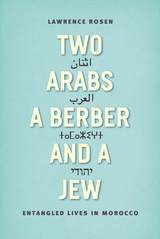
Through the intellectual lives of these four men, this book explores a number of interpretative and theoretical issues that have made Arab culture distinct, especially in relationship to the West: how nothing is ever hard and fast, how everything is relational and always a product of negotiation. It showcases the vitality of the local in a global era, and it contrasts Arab notions of time, equality, and self with those in the West. Likewise, Rosen unveils his own entanglement in their world and the drive to keep the analysis of culture first and foremost, even as his own life enmeshes itself in those of his study. An exploration of faith, politics, history, and memory, this book highlights the world of everyday life in Arab society in ways that challenge common notions and stereotypes.

When, in our turbulent day, we hear of a “clash of civilizations,” it’s easy to imagine an unbridgeable chasm between the Islamic world and Christendom stretching back through time. But such assumptions crumble before the drama that unfolds in this book. Two Faiths, One Banner shows how in Europe, the heart of the West, Muslims and Christians were often comrades-in-arms, repeatedly forming alliances to wage war against their own faiths and peoples.
Here we read of savage battles, deadly sieges, and acts of individual heroism; of Arab troops rallying by the thousands to the banner of a Christian emperor outside the walls of Verona; of Spanish Muslims standing shoulder to shoulder with their Christian Catalan neighbors in opposition to Castilians; of Greeks and Turks forming a steadfast bulwark against Serbs and Bulgarians, their mutual enemy; of tens of thousands of Hungarian Protestants assisting the Ottomans in their implacable and terrifying march on Christian Vienna; and finally of Englishman and Turk falling side by side in the killing fields of the Crimea.
This bold book reveals how the idea of a “Christian Europe” long opposed by a “Muslim non-Europe” grossly misrepresents the facts of a rich, complex, and—above all—shared history. The motivations for these interfaith alliances were dictated by shifting diplomacies, pragmatic self-interest, realpolitik, and even genuine mutual affection, not by jihad or religious war. This insight has profound ramifications for our understanding of global politics and current affairs, as well as of religious history and the future shape of Europe.
READERS
Browse our collection.
PUBLISHERS
See BiblioVault's publisher services.
STUDENT SERVICES
Files for college accessibility offices.
UChicago Accessibility Resources
home | accessibility | search | about | contact us
BiblioVault ® 2001 - 2024
The University of Chicago Press









